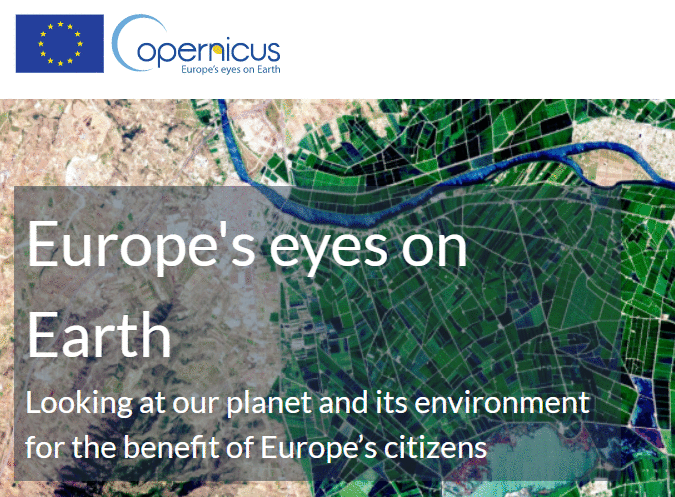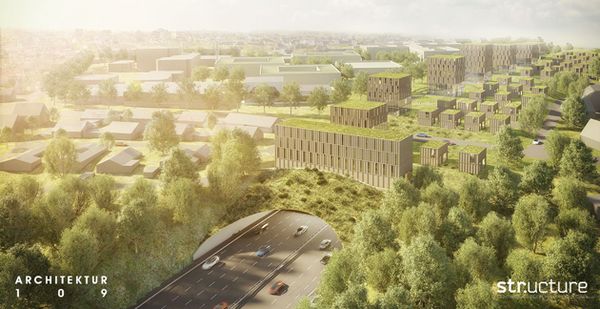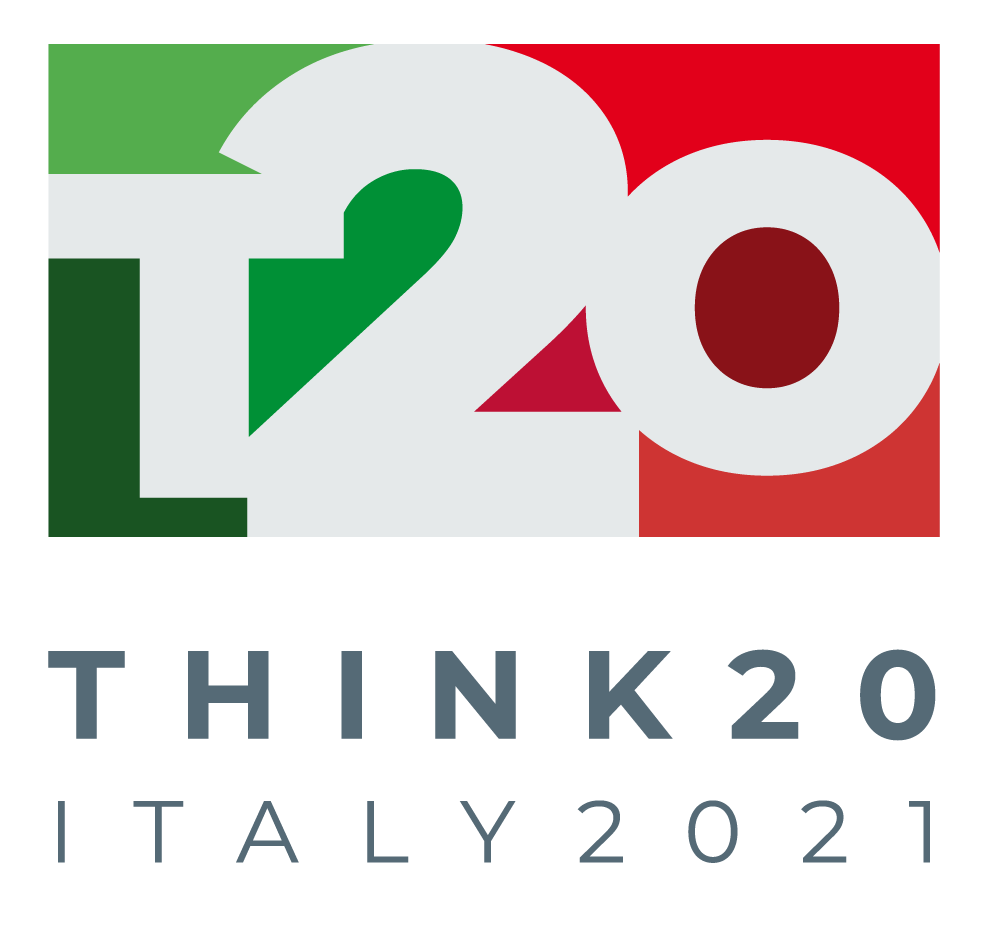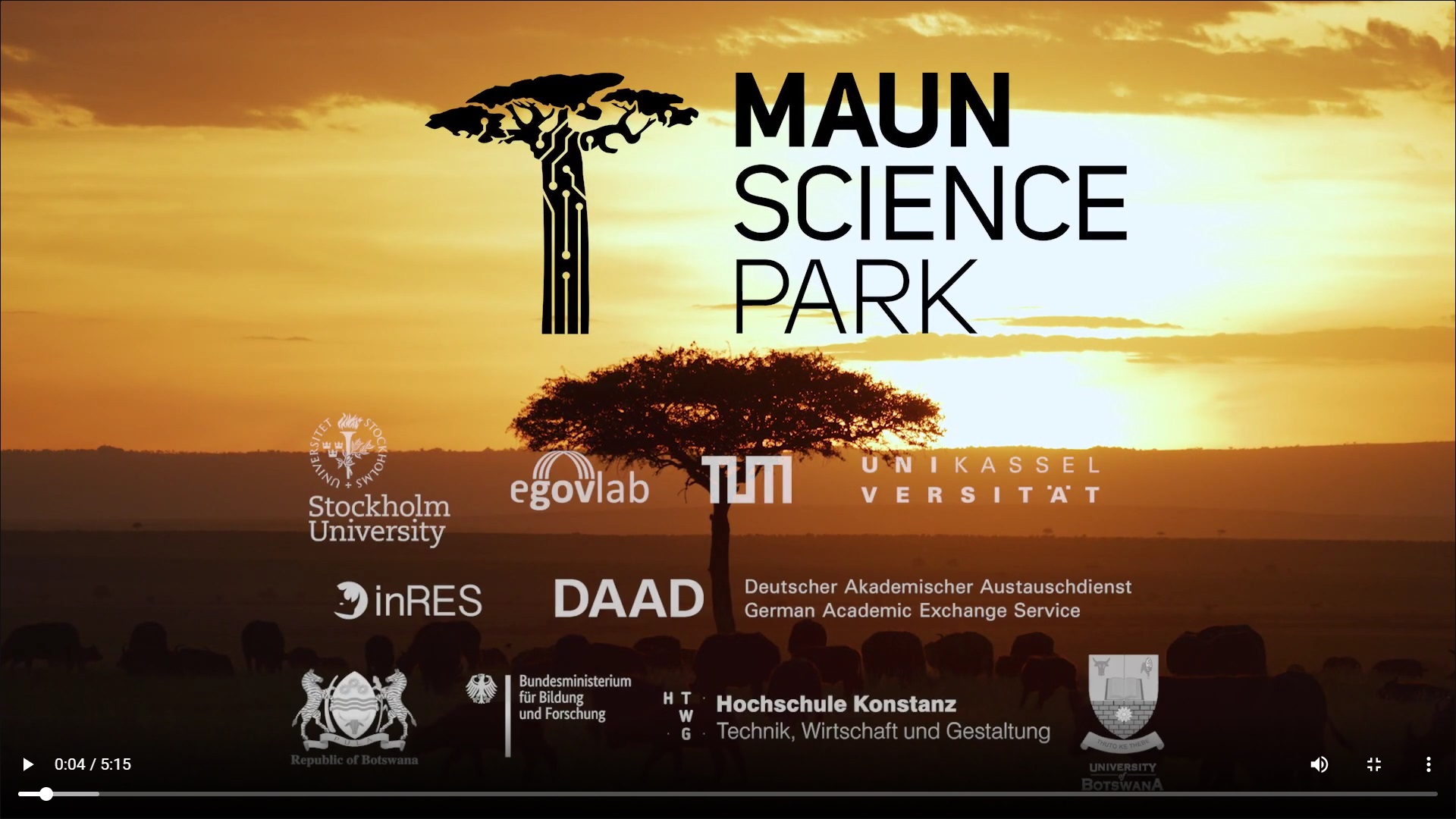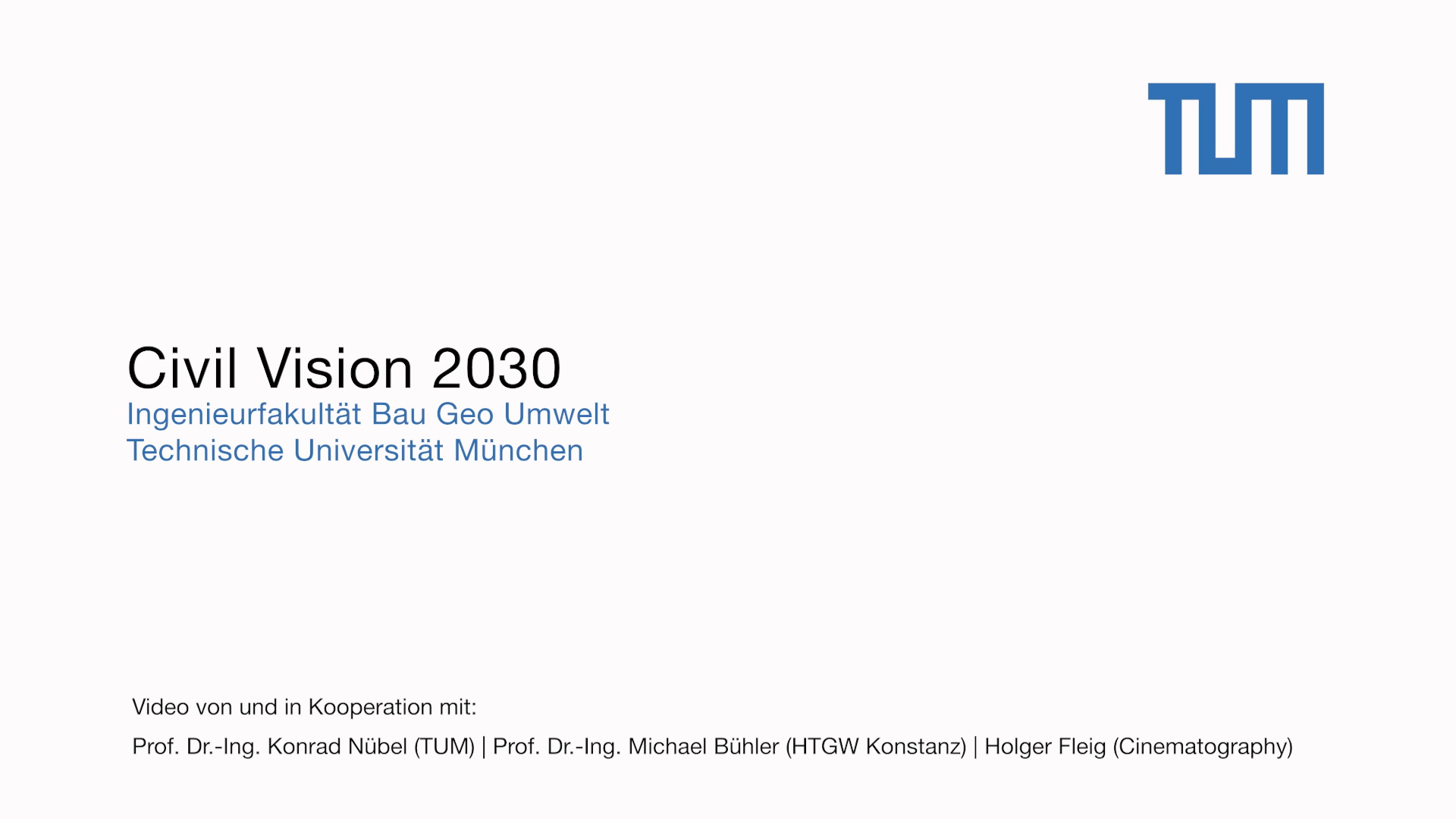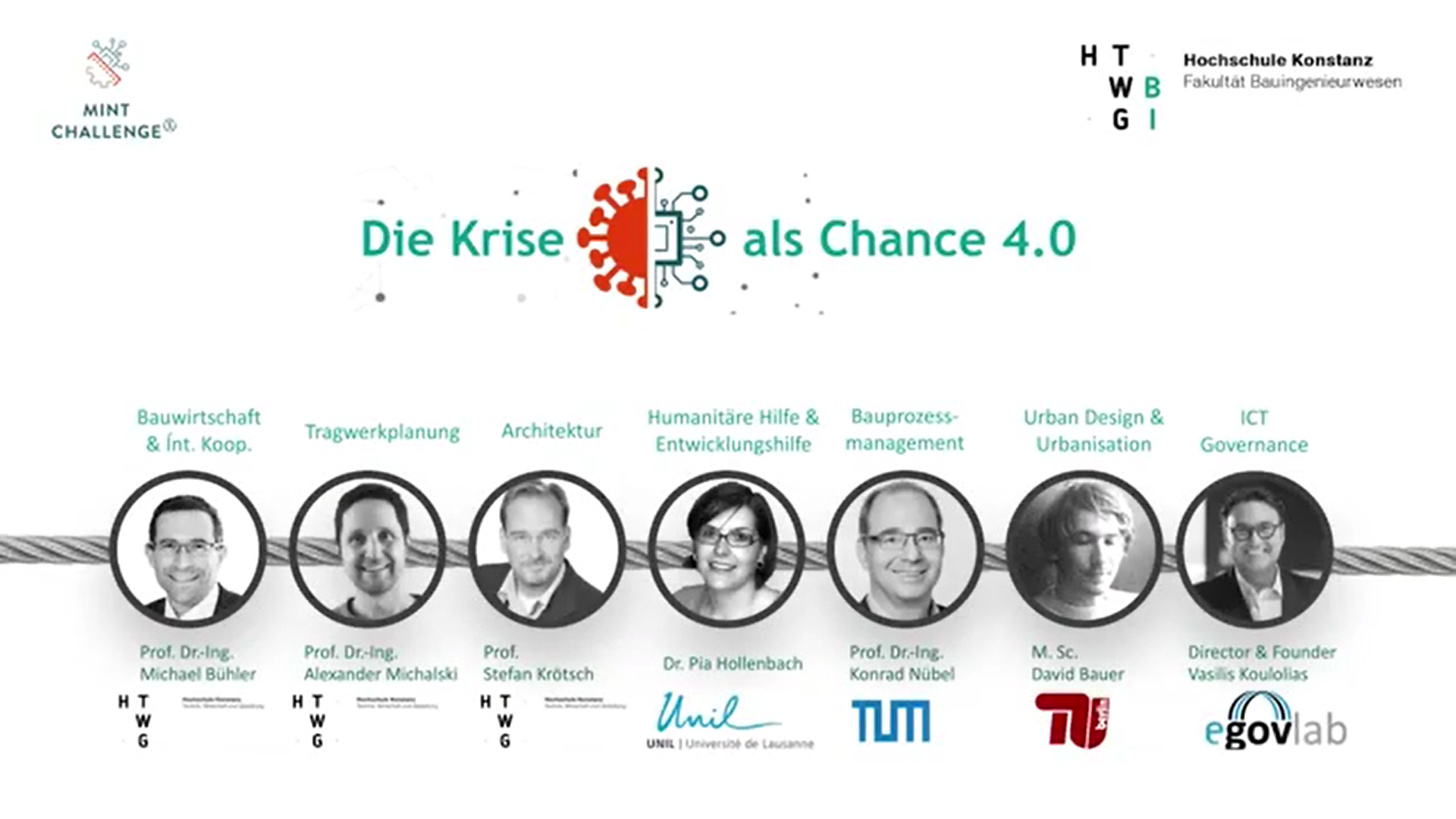My research interests ...
Infrastructure - Digital Transformation in Construction - Federated Digital Platforms - Future of Engineering
I have been teaching construction economics and construction business management at HTWG since 2019. My research interests focus on infrastructure planning and development, the future of the engineering profession in the face of complex global challenges and opportunities such as climate change and the fourth industrial revolution.
How does a city feel? Sensing City Constance Workshop
Scientists and students at the HTWG Konstanz are starting a special project in the winter semester 2022/23. Together with municipal offices, businesses and interested citizens, data will be collected from various sources and with the help of so-called Smart Citizen Kits, digital sensors that provide information about environmental factors such as fine dust, toxic gases and noise.
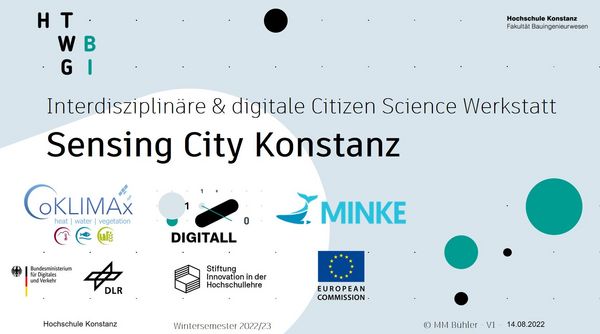
The aim is to find out how the quality of life in the city can be studied and improved. It had already become apparent during the Long Night of Science that there is great interest among citizens in improving the quality of life in Constance. This could be done with the help of sensor technology and remote sensing, with appropriate devices that are easy to operate.
It was also suggested that a public event be offered to gather initial practical experience with the Smart Citizen Kits, which are to be set up and installed throughout the city of Constance, and to deal with the topic in a practical way overall.
Therefore, Professor Michael Bühler, other HTWG professors and external experts in this field want to offer a kick-off event on the topic in October. The longer-term goal is to go beyond the format of a lecture "and give HTWG students the opportunity to experiment with smart city sensor technology and gain practical experience together with Constance citizens, city employees and experts from various disciplines as part of a Citizen Science Workshop," says Professor Bühler. The whole approach is also understood under the term "Citizen Science" and defined as scientific work by citizens, often in cooperation with or under the guidance of professional scientists and scientific institutions.
With this in mind, the first step will be to launch the interdisciplinary and digital workshop "Sensing City Konstanz" at HTWG in October in cooperation with the city of Konstanz, Konstanz citizens and experts from science and industry. By the beginning of January 2023, the best interdisciplinary teams will be assessed and awarded prizes by a jury of experts. Further information can be found at coklimax.net and www.htwg-konstanz.de/de/hochschule/personen/michael-buehler/projekte-forschung/. Applications can be submitted immediately by email to mbuehler@htwg-konstanz.de.
CoKLIMAx - Application of COPERNICUS data for climate-relevant urban planning using the example of water, heat and vegetation.
Development of low-threshold tools and efficient work processes for data collection, processing, analysis and application by municipalities - Specific climate adaptation and resilience measures can be efficiently designed and implemented at the regional and local level. Climate and environmental databases are critical for achieving the Sustainable Development Goals (SDGs) and for efficiently planning and implementing appropriate climate action: Available databases can serve as important starting points for municipalities to identify needs, prioritize resources, and allocate investments, taking into account usually tight budget constraints.

High-quality geospatial, climate and environmental data are now available - data from remote sensing, e.g. Copernicus services, will be crucial. There are forward-looking approaches to using such data to derive forecasts for urban planning process optimization by city governments. At the municipal level, however, the existing data have so far only been used to a limited extent, as there are no practical tools for urban planning with which remote sensing data can be merged with local data, combined in a meaningful way, and further processed and applied in municipal planning processes.
Therefore, our CoKLIMAx project aims to develop new digital products, advanced urban services and processes, such as the development of practical technical tools that capture various remote sensing and in-situ data sets for validation and further processing.
Publication about the project (english)
CoKLIMAx news article Südkurier
Researching the effect of green bridges to create and increase value in cities
So far, green bridges are mainly known along motorways to allow wildlife to cross traffic routes. Our research project Sulivaco investigates the effect of lightweight green bridges in the city, such as their contribution to increasing the quality of life, to the climate resilience of a city and to creating or increasing value in the real estate industry.
The Baden-Württemberg Ministry of Science is supporting our project for a period of one year with almost 130,000 euros. If inner-city traffic lanes are spanned at particularly suitable sections with the help of a green bridge, this can have a positive influence on the urban climate and also contribute to the added value of disadvantaged urban districts through emission protection and increased quality of life.
Creating a blueprint for Africa's transition to an inclusive and competitive digital economy
Our research project scored points in the International Telecommunication Union's "Connect2Recover" international competition: it was selected from 307 submissions for implementation.
The UN specialised agencies Information and Communication Technology and the International Telecommunication Union (ITU) jointly organised an international research competition for the first time. Under the motto "Connect2Recover", think tanks and international research groups were called upon to submit ideas for the success of digital inclusion in the key areas of education, employment and health care. From 307 research proposals, an international jury selected 15 projects for implementation, including the HTWG project. The project "Creating a blueprint for Africa's transition towards an inclusive and competitive digital economy: Identifying potential industries, stakeholders, and use cases for the development of a federated digital platform and advanced services with a focus on Botswana" is funded with 42,000 US dollars.
The research team plans to identify actors, industries and use cases in Botswana that are best suited to use the country as Africa's digital test bed for federated digital platforms with shared and open data spaces. These platforms can foster innovation and new business models and lower barriers to entry, including for smaller digital players. The proposed digital infrastructure, in conjunction with the so-called digital federation, has significant potential to enable the sovereign and secure data exchange that is the foundation for an innovative, inclusive and trusted digital economy.
The identification and definition of use cases will be guided by Botswana's digital transformation strategy. The research team will work directly with a local government cooperation partner ("SmartBots"). Finally, using a pilot project as an example, the team will outline ways in which the concept of federated data spaces can be scaled up for Africa.
Involved in the project, in addition to leader Prof. Dr. Michael Bühler, are Dr. Thorsten Jelinek, Taihe Institute Berlin, Prof. Dr. Konrad Nübel, Technical University of Munich (TUM), Vasilis Koulolias, eGovLab, Stockholm University, Dr. Pia Hollenbach, University of Lausanne, Loungo Monchusi, Yame Toto Follett Nkgowe, Dr. Sajid Sheikh, SmartBots, Government of Botswana, Ron Bakker and Elliott Afoke, Architectural Design PLP/Labs, London.
ITU Project Press Release HTWG
Connect2Recover Anouncement of the winners
Brochure of the winning projects
Interdisciplinary initiative "Gamification, Simulations & Serious Games"
Education 4.0 is a new educational paradigm designed to address the needs and opportunities of the fourth industrial revolution. Essentially, Education 4.0 is based on the concept of learning by doing, where students are encouraged to learn and discover different things in unique ways by experimenting. In addition to applying the technologies of Industry 4.0, Education 4.0 relies on concepts such as gamification, simulations and serious games.
The aim of this project is to compile a collection of best practices in the field of serious games and to educate about the topic. Within the framework of DIGITALL funding, a project group under the direction of Prof. Michael Bühler is working intensively on the topic of Gamification, Simulations & Serious Games, the results of which are explained in detail in the presentation opposite. Ultimately, a network of interested parties is to be created and real projects on serious games are to be initiated and implemented at the HTWG in the future.
GemeinWerk - A federated innovation platform: Development of a demonstrator for the construction industry
Digital platforms for secure and sovereign data exchange will also play a central role in the construction industry. With the help of digital platforms and value creation systems, the degree of organisation of the construction value chain can be brought to a new level of collaboration.Digital platforms for secure and sovereign data exchange will also play a central role in the construction industry. With the help of digital platforms and value creation systems, the degree of organisation of the construction value chain can be brought to a new level of collaboration.
With the help of digital platforms and the resulting value creation systems, the degree of organisation of the construction value chain can be brought to a new level of collaboration between the stakeholders of the construction industry. According to John Hagel III's definition of platforms, digital platforms consist of an ecosystem with governance structures (regulatory structures) and a set of standards and protocols to significantly improve interaction in a multi-stakeholder environment. Digital platforms can thus be seen as mobilisation platforms where individuals and groups (multistakeholders) of different needs and interests work together in a coordinated way for a common outcome.
The research project, which is financially supported by the Bavarian Construction Industry Association, aims to develop an experimental prototype for a Federated Innovation Data Platform along a suitable exemplary use case.
The prototype is intended to serve as a demonstrator for further developments and to develop the basis for an innovation platform. It is intended to exemplify how an overall concept can be concretely implemented along one or more use cases. This will create a blueprint and a framework for further developments, which will then establish themselves further in the market based on demand. The research project will thereby also illuminate the perspective of different business model innovations as well as the overall potential of possible platform business models.
G20/T20 Task Force 7 "Infrastructure Investment and Financing"
At the moment, we are helping to prepare for this year's G20 meeting in Italy as a member of the "G20 global infrastructure center" academic advisory board
(G20 Global Infrastructure Hub Academic Advisory Panel). In addition, I contribute to the T20 group together with Prof. Dr. Konrad Nübel, Full Professor at the TUM Chair of Construction Process Management and Real Estate Development, and with Dr. Thorsten Jelinek, Europe Director Taihe Institute, to Task Force 7 (Infrastructure Investment and Financing) the jointly authored policy brief "Infrastructure 4.0 - Value Chain Integration Through Federated Digital Platforms". Our contribution has been selected from more than 1800 submissions. This initiative is currently sponsored by the Bavarian Construction Association (see also Policy Brief Press Release and Infrastructure 4.0 Workshop Munich).
Download the official T20 Policy Brief
Maun Science Park Project
A self-sufficient, sustainably managed district - that is what is to be created in Maun in Botswana's Okavango Delta with the help of state-of-the-art technologies. HTWG faculty and students are working together with scientists and students from all over the world to realize it. The project is intended to become a model for future life on earth.
Majestic wildlife, untouched vegetation - the Okavango Delta in Botswana is a species-rich wetland in the middle of the dry Kalahari Desert. Some people compare it to the Garden of Eden. The YouTube video "Botswana's Okavango Delta - Heaven on Earth" provides an impressive insight into the region. Without water, however, the wealth of species would disappear. And water is becoming increasingly scarce, just like other resources.
Maun, a rapidly growing urban settlement on the southeastern edge of the Okavango Delta, is home to 50,000 people. They are increasingly encroaching on the habitat of the Delta's diverse wildlife.
Currently, the project is still in its infancy: In a first step, HTWG, in cooperation with international universities, the University of Botswana, as well as local entrepreneurs and the population of Maun, wants to develop a design concept that can be implemented in the coming years.
EU Gaia-X "Smart Infrastructure Management"
Since the beginning of 2021, we have been accredited together with TU Munich for the development of the EU Gaia-X platform. Our development will focus on the use case "Smart Infrastructure Management", which we will also investigate in the context of our G20/T20 policy development. Gaia-X "Smart Infrastructure Management" lays the foundation for better interdisciplinary collaboration in planning and ensures continuous availability of data across organizations and agencies. This not only helps accelerate planning processes, but also puts a holistic approach to planning processes into practice.
Civil Vision 2030
Together with the Technical University of Munich, we have designed the Civil Vision 2030 and implemented it in a short video. This vision for which we stand includes the systemic integration of economic and social success, the protection of the climate and the environment and the associated social responsibility, as well as the development of the talents of the future. An important foundation for Civil Vision 2030 was already laid in 2018 at the World Economic Forum.
Die Krise als Chance 4.0
COVID19 has accelerated the digitization of teaching and learning processes! Now is the time to creatively and innovatively anchor the existing digital technologies in the teaching and learning process in a sustainable way. Methods of e-teaching and e-learning prepare future decision makers to find solutions to increasingly complex global risks. Negative consequences of climate change, the unchecked hunger for resources, and increasing urbanization require socio-ecological system responses and changes in which forward-looking engineering solutions play a key role.
